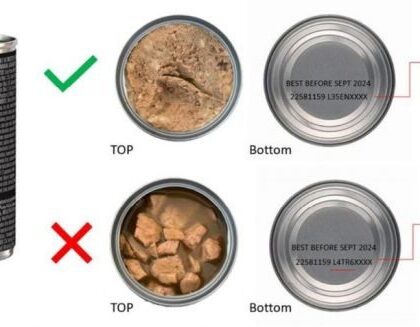
PR strategists know it works: release bad news on Friday in hopes that it won’t draw too much attention over the course of the weekend. That was precisely what the Food and Drug Administration (FDA) did with its announcement to stop updating on its dilated cardiomyopathy (DCM)/grain-free pet food investigation “unless there is meaningful new scientific information,” so as not to dominate conversation during Christmas season and over its long holiday weekend.
So what began over four years ago as an FDA alert is finally coming to an end (sort of?) quietly and unceremoniously. Unfortunately, after multiple reports and articles by both government agencies and industry news sources; billions spent responding or spent researching; confusion among pet owners, veterinarians, retailers, and pet food brands; sky-high levels of anxiety from all quarters involved and no real endpoint yet found; there’s really no closure here.
Was anything discovered from FDA investigation? First, here is what Tim Wall of FDA reported:
FDA received far fewer reports of DCM from 2020-2022 compared with its preceding two years, in total receiving 1,382 cases between Jan 1, 2014, and Nov 1 2022; most of those cases clustered around FDA announcements regarding correlations among grain-free dog foods and DCM.”
“FDA concluded it did not possess enough data to establish causality between DCM case reports and pet food products consumed by affected dogs.
Since FDA’s initial announcement of July 2018; since that momentous event has unfolded far-reaching ramifications which likely will not cease even with December 23rd’s disclosure of no further updates.
Nearly one year later, in June 2019, FDA added to the frenzy by issuing another report, this time listing specific pet food brands most often associated with officially documented cases of DCM in dogs. This caused sales and reputational hits for these brands as well as the entire grain-free pet food category–despite including both grain-inclusive formulations as well as grain-free formulations on its list.
Investigation Slumping Down by 2020
At an American Feed Industry Association Annual Pet Food Conference presentation given in January 2020 by David Edwards, Ph.D. from FDA’s Center for Veterinary Medicine’s Office of Surveillance and Compliance, an apparent shift was signaled: no new information had come forth and they did not anticipate any announcements being made shortly.
At the time, myself and others suspected this could be because the investigation had reached an impasse; our suspicion was confirmed when, in November 2020, FDA issued an intriguing announcement: that their investigation had reached an “inflection point.” However, this statement wasn’t meant as an update!
No matter its source, the recent outbreak followed closely on a virtual scientific forum held at Kansas State University in September 2020 during which Steven M. Solomon, DVM, MPH – then director of CVM – acknowledged that DCM is “complex medical condition that may be affected by multiple factors including genetics, medical conditions and diet”.
That was exactly the message put out by the pet food industry all along (if diet were even implicated at all).
Does Anyone Take any Measure of Satisfaction? Unfortunately, FDA has provided very little communication on its DCM investigation since. Of course, the agency’s focus was diverted during a pandemic; but even as we recovered from that phase it has largely remained silent; its latest announcement at the end of 2022 only occurred because pressure mounted from Freedom of Information Act requests and they felt obliged to provide some sort of response otherwise silence may have persisted.
FDA’s most recent announcement that there wasn’t enough data to link DCM cases and food consumed by their dogs may provide some comfort for members of the pet food industry, but overall it leaves a bitter taste in my mouth – I keep coming back to thinking it all was an unnecessary waste of time, money, emotion, and goodwill.
FDA cannot and should not have ignored DCM cases brought forward by veterinary cardiologists in 2018. Where they erred was by making an announcement soon afterwards instead of undertaking proper investigation into whether grain-free pet food might have any relationship with DCM cases; that investigation should have involved speaking to industry leaders, veterinarians and experts, not only cardiologists.
Assuming you own a pet with DCM, no matter its cause, I find no solace in recent announcements regarding DCM. Does anyone feel satisfied or think this matter has been properly resolved?
Yet I do hope researchers outside of FDA continue their work on DCM and its causes; perhaps that would be one benefit from all this unpleasantness.




